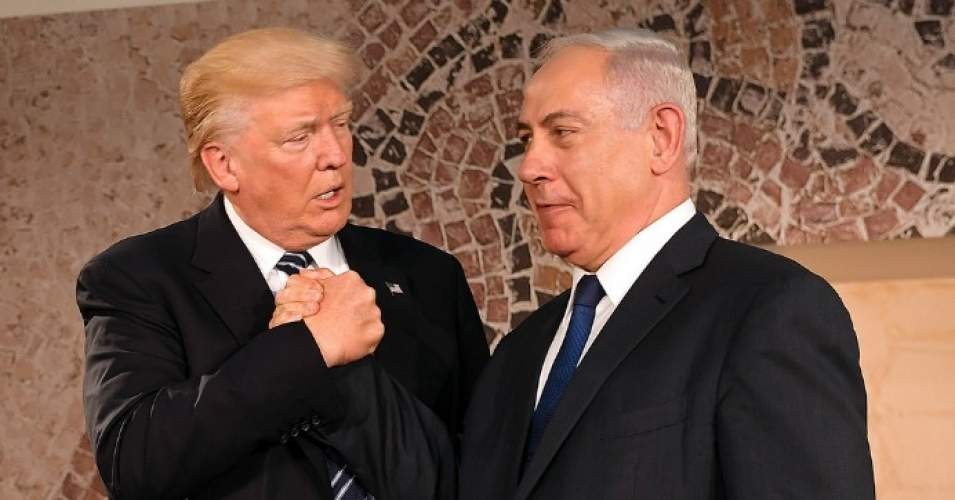
PEJOURNAL – On Wednesday, July 7, the Zionist regime’s plan to occupy parts of the West Bank will be presented to parliament by the regime’s government.
Although the plan is not new and its main content was agreed upon in the 1991 Oslo Accords, the Palestinian resistance has never agreed to it.
Palestinian resistance groups have threatened to launch a new war in the occupied territories.
Mahmoud Abbas (Abu Mazen), the head of the Palestinian Authority, also reacted to the Zionist regime’s move, saying that the US government had advised Netanyahu that the time was not right and that it would be better to delay the operation.
The European Union (EU) has reacted sharply to the move, threatening to recognize the independent Palestinian state, simultaneously deploying sanctions on Zionist.
With the implementation of this plan, the Zionist regime is trying to go beyond the compromise agreement in Oslo and allocate a 30% share for the construction of Zionist settlements in the West Bank region. Meanwhile, Zionist settlements in the West Bank are also protesting against a 30 percent share, looking for a 45 percent share.
On the other hand; Due to growing pressure from the Palestinian resistance, as well as widespread international opposition, Benjamin Netanyahu has decided to implement the plan in stages to prevent a serious conflict in the occupied territories.
Although; there are serious differences between the Zionist regime’s political parties over the plan implementation time, as the leader of the Blue-White Party, Benny Gantz, who recently agreed with Netanyahu to pull the regime out of the political stalemate and form a government, opposes the implementation of this plan at the announced time. However, he said that the plan should be implemented in a timely manner and in accordance with the plan of the century and in full.
Most right-wing parties in the Zionist regime do not agree with the creation of two states and the recognition of an independent Palestinian state, and only use the capacities provided by the Oslo Accords to complete the occupation and occupation of the Palestinian territories.
One of the main reasons for the opposition of the majority of political parties to the timing of the plan is to prevent Netanyahu’s political and media exploitation of the move to gain popularity.
In addition to the parties, the Israeli military, intelligence and security services also have differing views on the timing and manner of the plan.
The military and Shabak (Shin Bet) believe the plan should be implemented in stages to prevent escalating tensions in the occupied territories, but Mossad insists on full implementation.

Netanyahu has also used all available capacities to pass the plan in the Knesset (parliament) so that he can get rid of the political bottlenecks caused by his and his family’s economic corruption and re-establish himself in the upcoming elections without the need for a coalition with other parties. Be the prime minister of the Zionist regime.
Although the approval and implementation of this plan will not lead to the formation of objective changes in these areas and the relocation of the current residents of the West Bank, it will be recognized by the Zionists and will become a platform for a new movement in the occupation.
Although the Zionist regime’s pursuit of this plan has been opposed by the majority of countries in the region and the world, initial assessments suggest that the leaders of this regime, especially Netanyahu himself, will not stop their efforts in this regard.
The Zionist regime’s plan to occupy parts of the West Bank is undoubtedly a continuation of the occupation and expulsion of Palestinians from their homeland, and the implementation of the step-by-step occupation plan paves the way for a full occupation. The Palestinians and the recognition of an independent state will not be the same as those envisaged in the Oslo Accords.
The Zionist regime has taken advantage of the political, economic and security conditions in the world to gamble, the consequences of which are unpredictable.
Given the current situation, the leaders of the Palestinian Authority, who sought to achieve an independent state, will miss this opportunity and naturally have no incentive to support and support this path.
President Trump, who is facing severe internal and external crises ahead of the presidential election, is by no means willing to take the risk of a new move that could have devastating effects on his precarious situation, and so far has been neutral. Netanyahu has benefited from this decision.
Jordan, as a country that has suffered the most from the Zionist regime’s political and economic influences and is deeply concerned about the possibility of an increase in Palestinian refugees and a complete change in population composition, has openly stated its opposition.
The Israeli prime minister is willing to commit any crime or costly act to escape punishment, as well as his political survival, so it is quite possible that the alarming situation created by the Palestinian Muslim people’s confrontation with the Zionist regime will prevent them from violating their rights.
Examining the combination of influential domestic, regional and international factors on the dangerous and adventurous decision of the Zionist regime, confirms the fact that in the coming days the occupied territories will be pregnant with worrying and unpredictable events that, the responsibility for the risks lies with the Prime Minister of the Zionist child-killing regime, naturally.